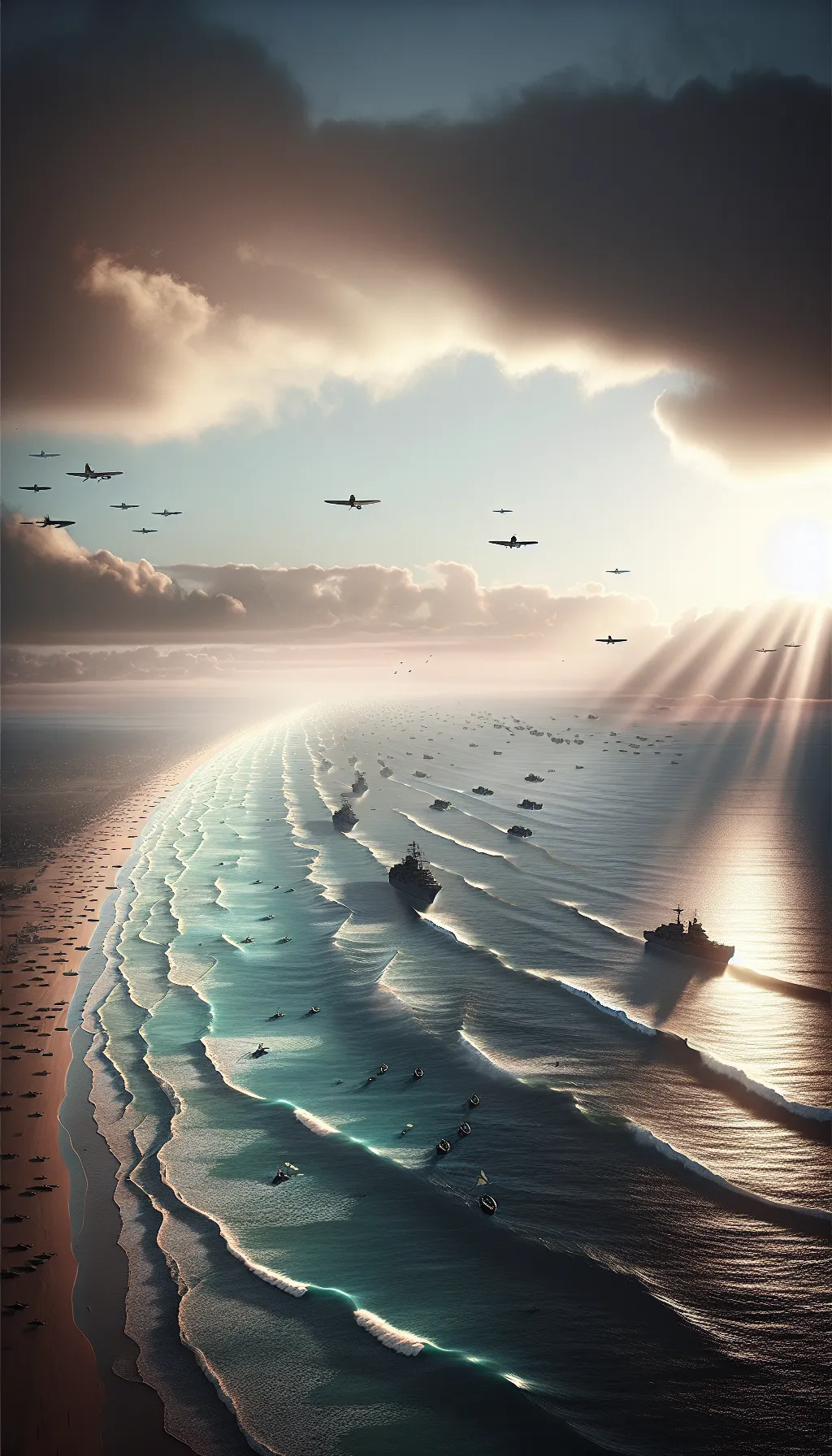France – D-Day: The Dawn of Liberation - June 6, 1944
TLDR;
- Event: On June 6, 1944, the Allies launched D-Day, the largest amphibious invasion in history, targeting Nazi-occupied Normandy, France.
- Operation Overlord: This meticulously planned operation aimed to breach Hitler’s Atlantic Wall, involving landings on five beaches: Omaha, Utah, Gold, Juno, and Sword.
- Challenges: Facing fierce German defenses, especially at Omaha Beach, Allied troops endured heavy casualties but eventually secured all five beaches by nightfall.
- Impact: D-Day marked a pivotal turning point in World War II, leading to the liberation of Western Europe from Nazi control.
–
Story
The first light of dawn on June 6, 1944, revealed a sight that would change the course of history. The horizon off the coast of Normandy was dotted with an armada of ships, among the largest ever assembled. As the sun rose, the air was filled with the roar of aircraft and the distant rumble of artillery. This was D-Day, the beginning of the end for Nazi-occupied Europe.

For months, the Allies had meticulously planned Operation Overlord, the codename for the invasion of Normandy. The goal was audacious: to breach Hitler’s formidable Atlantic Wall and establish a foothold in France. The stakes were immense, and the risks even greater.
As the landing craft approached the beaches, soldiers braced themselves for the fight of their lives. Omaha, Utah, Gold, Juno, and Sword—names that would forever be etched in history. The Germans were well-prepared, their defenses fierce and unyielding, though hampered by confusion and Allied deception. The first waves of troops faced a hail of bullets, many never making it past the water’s edge, especially at Omaha Beach.
Yet, through sheer determination and sacrifice, the Allies began to gain ground. Paratroopers had already landed behind enemy lines, though many were scattered far from their intended drop zones, disrupting communications and sowing chaos where they could. By nightfall, the Allies held all five beaches, though some positions remained vulnerable. The road inland would prove long and bloody, but the door to liberation had been forced open.
D-Day was more than just a military operation; it was a testament to the courage and resilience of those who fought for freedom. It marked the turning point in World War II, leading to the liberation of Western Europe from Nazi tyranny.
–
| Would a different strategy have changed the outcome of D-Day? |